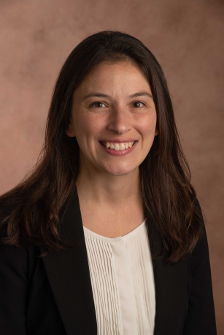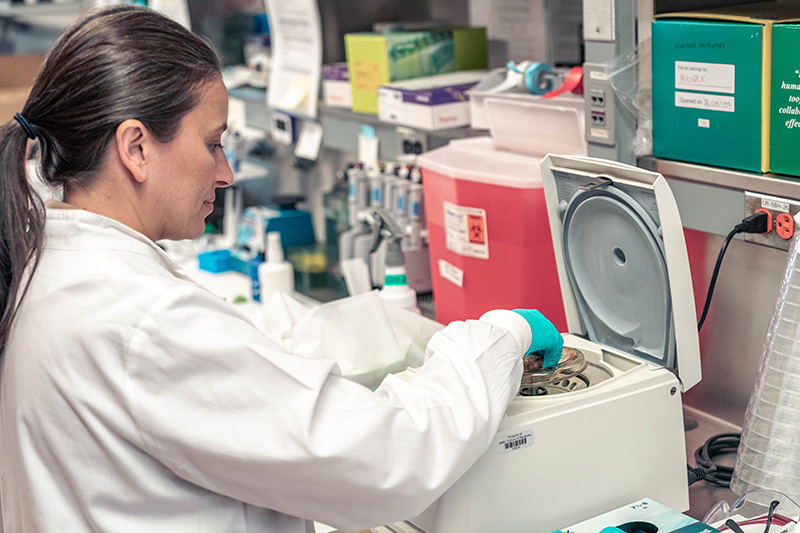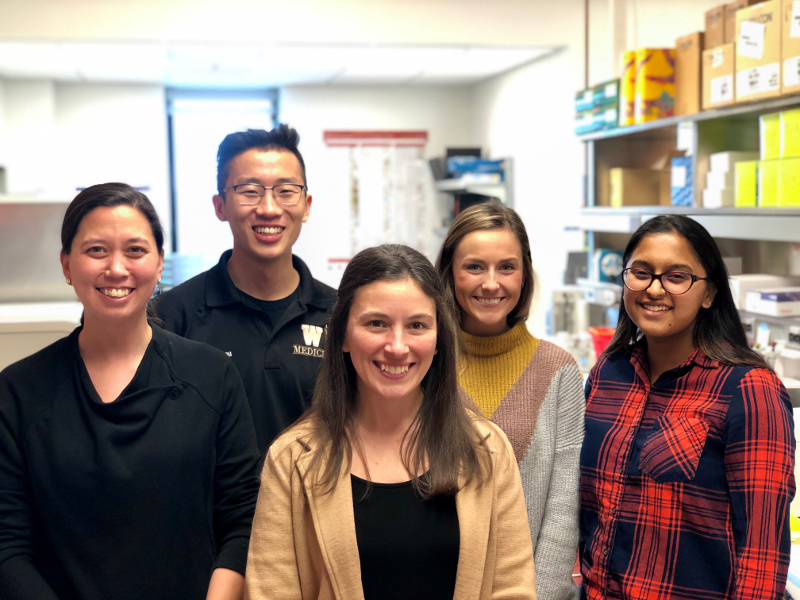
Dr. Holodick performed her undergraduate work at Northeastern University in Boston, Ma. She obtained her PhD in Immunology from Boston University in 2009, working on signaling and development of B-1 cells. Dr. Holodick expanded her work on B-1 cells during a postdoctoral fellowship at the Feinstein Institute for Medical Research in Manhasset, NY. During this time, she focused her research on the role of B-1 cells in infection during aging.
Recently, Dr. Holodick was appointed to Assistant Professor in the Center for Immunobiology and Department of Biomedical Sciences at WMed. In addition, Dr. Holodick is currently serving as Scientific Director for the Flow Cytometry Core facility.
Research Focus
B-1 cells are essential for immediate protection and therefore survival against bacterial and viral infections. Murine B-1a cells are defined by unique surface marker expression (CD45loCD5+IgMhighIgDlowCD43+CD19highMAC1+) as well distinct functional characteristics. B-1a cells arise mainly during fetal development, and their persistence throughout adult life is maintained through self-renewal.
Our work is focused on how B-1 cells change with age in relation to their ability to protect against infection. We study these changes with age in relation to B-1 cell development and mechanism of antibody secretion. Streptococcus pneumoniae is the most common cause of pneumonia, which claims the lives of people over the age of 65 seven times more frequently than those aged 5-49. B-1a cells provide immediate and essential protection from S. pneumoniae through production of natural antibody. Our research is aimed at understanding the mechanism of natural Ig change with age but also during disease.
Sickle cell disease (SCD) is one of the most common blood disorders affecting millions of people worldwide. One of the major causes of death for those with SCD is infection, in particular Streptococcus pneumoniae infection. Despite current interventions such as prophylactic antibiotics and vaccination, pneumococcal infection still poses a great risk to sickle cell patients. Our current studies are aimed at understanding whether B-1a cells and the protective antibodies they produce are altered in sickle cell disease.

Lab Personnel
 |
|
 Sydney Les Sydney LesMedical Student sydney.les@wmed.edu |
|
 Jordan Terry Jordan TerryMedical Student jordan.terry@wmed.edu |
 Rosemary Vergara Rosemary VergaraMedical Student rosemary.vergara@wmed.edu |
- Lab News
January 2023
- Our study showing sex influences age-related changes in antigen specific natural antibodies has been published in Frontiers in Immunology.
- Our study showing sex and age influences modulation of the microbiome has been published in Frontiers in Microbiomes.
- Dr. Webster presented at the 2022 Michigan Biology of Cardiovascular Aging Symposium in Ann Arbor, MI.
April 2022- Our study showing sex influences age-related changes in natural antibodies and CD5+ B-1 cells has been published in the Journal of Immunology.
- Dr. Webster will be delivering two oral presentations and two poster presentations at the 2022 AAI meeting in Portland, Oregon.
September 2020- Our NIH R01 was funded through the NIAID. This grant focuses on understanding the role of sex during the aging process in affecting the ability of natural antibodies to provide protection from pneumococcal infection.
August 2020- Our study showing both antigen receptor specificity and B cell location influence the diversification and selection of B-1a cells with increasing age has been published in the Journal of Immunology.
July 2017- A perspective article was published from the Holodick Lab in collaboration with our colleagues from the Center of Molecular Immunology in Havana, Cuba, which is entitled Defining Natural Antibodies.
- An editorial was published from the Holodick Lab in collaboration with our colleagues from the Center of Molecular Immunology in Havana, Cuba, which introduces 16 articles we assembled for a research topic in Frontiers in Immunology forcused on Natural Antibodies in Health and Disease.
- Former Lab Members
- LaKeya Cartwright
- Jesse Chou
- Noelle Gutowski
- Ian Hurley
- Kimberly Mao
- Wenceslao Martinez-Navarrete
- Brinda Ryali
Recent Publications
Our laboratory group is committed to pursuing inquiry, disseminating knowledge, and fostering critical thinking that encourages lifelong learning. Take a look at a comprehensive listing of Dr. Holodick's most recent publications.

We welcome passionate researchers at any level to be a part of our team and exciting discoveries taking place in our laboratory. More information about these opportunities can be found by contacting Dr. Holodick at nichol.holodick@wmed.edu, or check out the medical school’s latest job opportunities.


 Sarah Webster
Sarah Webster Daken Heck
Daken Heck Peter Ewing
Peter Ewing Morgan Helmich
Morgan Helmich